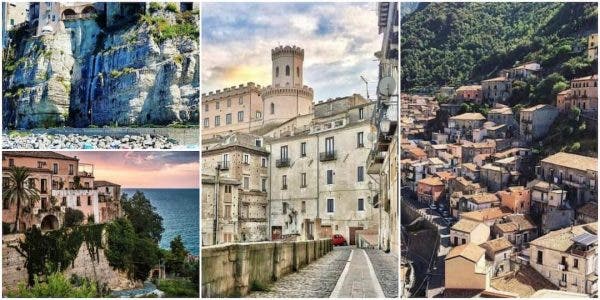
Calabria: How To move To Calabria – Italian Village Will Pay You $33k To Move In
Published on July 13, 2021 at 9:39 AM by Mc Noel Kasinja
The villages in the region with barely 2,000 inhabitants will pay the sum over a maximum of three years.
With this plan, the local government hopes to reverse years of population decline.
How to Move to Calabria and Access the funds
In order to get the funds, new residents must also commit to kickstarting a small business, either from scratch or by taking up preexisting offers of specific professionals wanted by the towns.
There are a few other catches too.
Applicants must take up residency and — sorry boomers — be a maximum of 40 years old. They must be ready to relocate to Calabria within 90 days from their successful application.
It’s hoped the offer will attract pro-active young people and millennials eager to work.
Gianluca Gallo, a regional councilor reveals that the monthly income could be in the range of €1,000-€800 for two to three years.
Alternatively, there could be one off funding to support the launch of a new commercial activity — be it a B&B, restaurant, bar, rural farm, or store.
“We’re honing the technical details, the exact monthly amount and duration of the funds, and whether to include also slightly larger villages with up to 3,000 residents,” he tells CNN.
“We’ve had so far a huge interest from villages and hopefully, if this first scheme works, more are likely to follow in coming years.”
Dubbed “active residency income,” the project aims to boost the appeal of Calabria as a spot for “south-work” — the rebranded southern Italy version of remote working — explains Gianpietro Coppola, mayor of Altomonte, who contributed to the scheme.

He says it’s a more targeted approach to revitalizing small communities than the one euro house sell offs that have recently hit headlines.
“We want this to be an experiment of social inclusion. Draw people to live in the region, enjoy the settings, spruce up unused town locations such as conference halls and convents with high-speed internet. Uncertain tourism and the one euro houses are not the best ways to revamp Italy’s south,” says Coppola.
The “active residency income” project — and application process — are expected to be launched online in the next few weeks. The region has been working on it for months and has already earmarked more than €700,000 for the project.
The region of Molise and the town of Candela, in Puglia, have adopted similar schemes in past years as an alternative to selling crumbling homes for the cost of an espresso.
Culled from CNN


